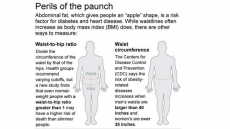Irrespective of your biological sex, performing traditional gender roles ascribed to women such as managing the household or taking care of children may put you at increased risk of a second cardiac event after a heart attack, new research has found.
The findings suggest that gender role is more important than biological sex in predicting health outcomes after a heart attack.
"Our study suggests that adults with role and personality traits traditionally ascribed to women have an increased risk of recurrence of premature acute coronary syndrome (ACS) or major adverse cardiac events within 12 months following their first incident, regardless of their biological sex," said the study's lead author Louise Pilote, professor of medicine at McGill University in Montreal, Canada.
The results were published in the Journal of the American College of Cardiology.
The researchers conducted their study on approximately 1,000 participants from across Canada aged 18 to 55 who had been hospitalised for an ACS between January 2009 and April 2013.
"Patients involved in the study, who had presented with an ACS, were asked to complete an elaborate questionnaire related to gender," the study's first author Roxanne Pelletier from McGill University.
"The questions addressed different aspects of gender as traditionally ascribed to men and women in society such as the number of hours that the person spends carrying out household chores or taking care of children, the person's salary," Pelletier explained.
Researchers then developed a gender index ranging from one to 100 points, going from a very high level of characteristics traditionally ascribed to men (one point) to another extreme of characteristics traditionally ascribed to women (100 points).
"We observed that participants with a very high score of traditional feminine characteristics, regardless of whether they were biologically a man or a woman, were more likely to have a second cardiac event," Pelletier noted.
"In our cohort, characteristics traditionally ascribed to females seemed to adversely affect health outcomes, potentially though increased anxiety related to those characteristics," Pilote added.




